‘Our relatives under the water.’ Lummi release salmon to ailing orcas
Lummi tribal members released one live chinook salmon into the Salish Sea on Wednesday as a spiritual offering to J17, an orca matriarch who has been ailing.
The southern resident orcas are at risk of extinction.
It was blustery at Squalicum Harbor in Bellingham on Wednesday. Members of the Lummi Tribe boarded a boat in the early grey morning light with a mission: to save the critically endangered southern resident killer whales.
The Lummi tribe, which originates in northernmost Washington state and British Columbia, call the whales their relatives. The Lummi phrase they use to describe killer whales, "qwe lhol mechen," translates roughly to “our relatives under the water.”
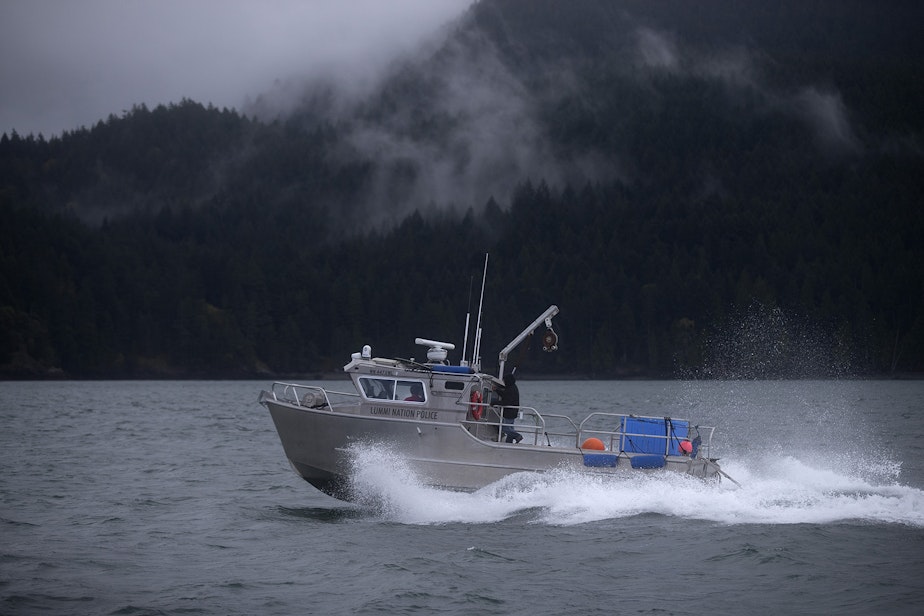
The tribe wants all the southern resident orcas to fare well, but there’s one in particular they are worried about. J17, also known as Princess Angeline, has recently shown signs of emaciation.
Scientists say she may not survive the summer. Lawrence Solomon, tribal secretary of the Lummi Nation, led the morning with the Lummi National Anthem.
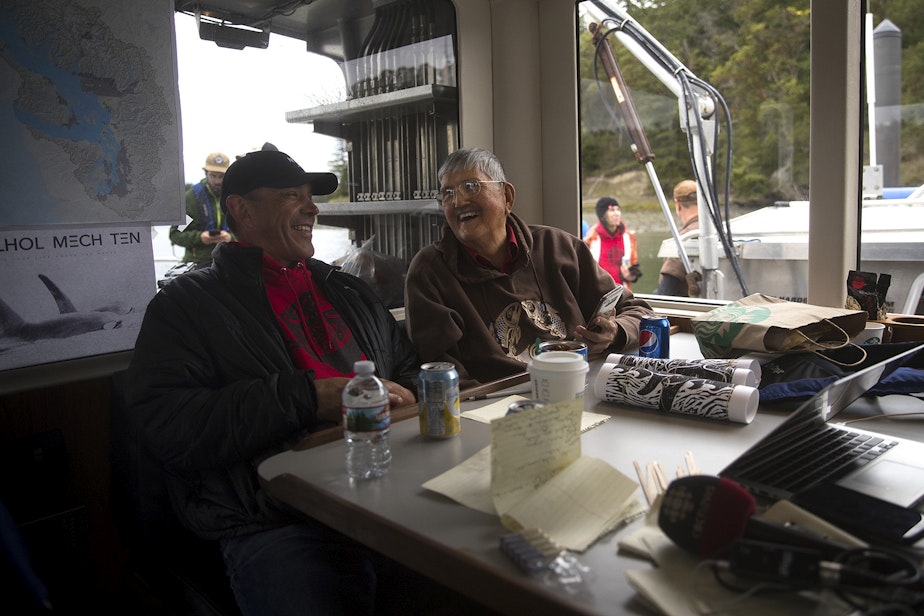
The Lummi boat set off at around 8 a.m. and for the San Juan Islands. Journalists and some members of the Lummi tribe followed in the SoundGuardian, a King County research vessel. The boats reached a cove near Henry Island, a small island near the northern tip of San Juan Island.
In the distance, over wind and waves, we could hear the Lummi begin the spiritual orca feeding ceremony. During the ceremony, one live chinook salmon was released into the Salish Sea as a spiritual offering to J17.
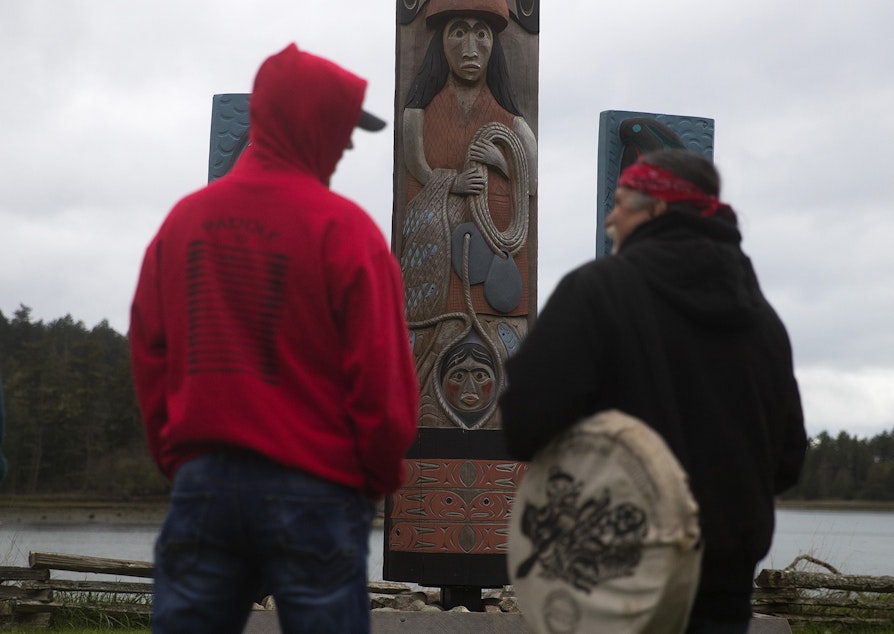
The ceremony they performed is considered sacred and ordinarily something kept within the tribe. But given the dire state of the killer whale population, they decided to share it with journalists to get the word out about the whales’ risk of extinction.
Just 75 southern resident killer whales remain. Their population has declined dramatically from a peak of about 200 decades ago. “This is our southern resident task force. The work that we did today. No one can move this forward alone, it’s gotta be done together,” said Jay Julius, chairman of the Lummi Nation.
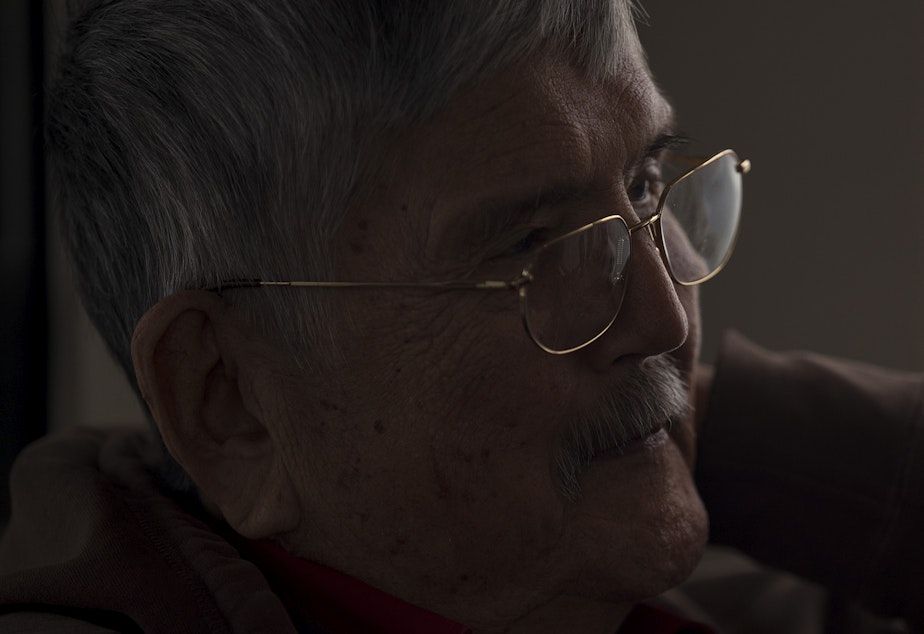
Standing near the shore in front of salmon carvings by Lummi member Jewell James, Julius gave an outdoor presentation after the ceremony at English Camp on San Juan Island, an ancestral Lummi home.
Julius said the ceremony serves as a reminder of how connected we are to the environment.
“This wasn’t always the apple state. This was a salmon state,” Julius said. ‘With salmon came healthy orcas, healthy Salish Sea. What happens to the Salish Sea will inevitably happen to us."
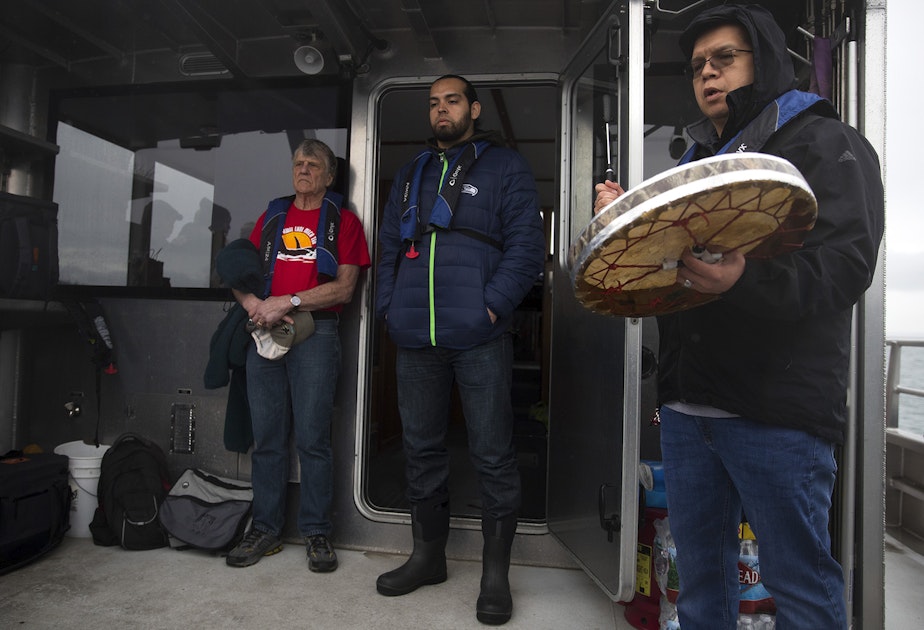
He continued: "This garden that we were blessed since the beginning of time, it always came back. We've been farmers of the sea since time immemorial. And now we are faced with the struggles that not only we face today but the orcas are facing today. So we need to step up. We are at the point right now where we don’t have much time.”
We walked back to the SoundGuardian from English Camp. I spoke with some members of the Lummi tribe about the ceremony.
Raynell Morris is on the Lummi Indian Business Council, and she said the ceremony is partly about building awareness.
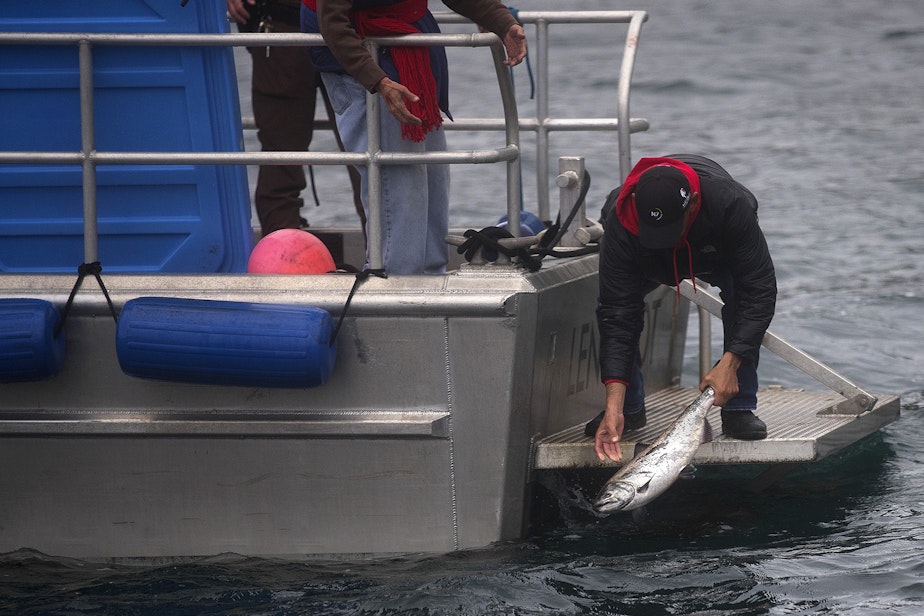
Last summer, the orca J35, the daughter of J17, carried her dead calf in Salish waters for at least 17 days. This awakened people internationally to the plight of the whales.
“I’m a mother. I’m a grandma, I’m a matriarch in my family, I'm an elder in my tribe,” Morris said. “And she was telling us 'come and help me. Help me and help yourselves.' What we see in her, we see in our communities."
Morris hopes to build on the momentum of these moments that have stirred public consciousness.
“If we can change public will, we can change political will,” she said.
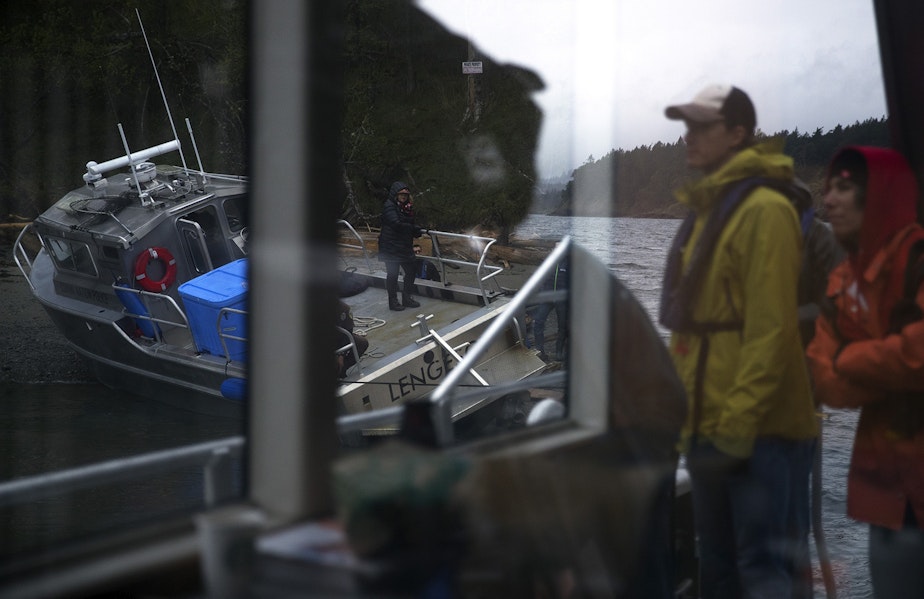
Jay Julius said it’s important to stay vigilant about recovery efforts, even when it's not as visible to us.
“Can you imagine what we don’t see that they go through?” Julius said.
Bill James is the hereditary chief of the Lummi tribe. He believes there is value to the spiritual feeding beyond saving the killer whales. It's also about preserving the Lummi culture itself.
On the boat ride back to Squalicum Harbor, James lamented the historic attempts at erasure.
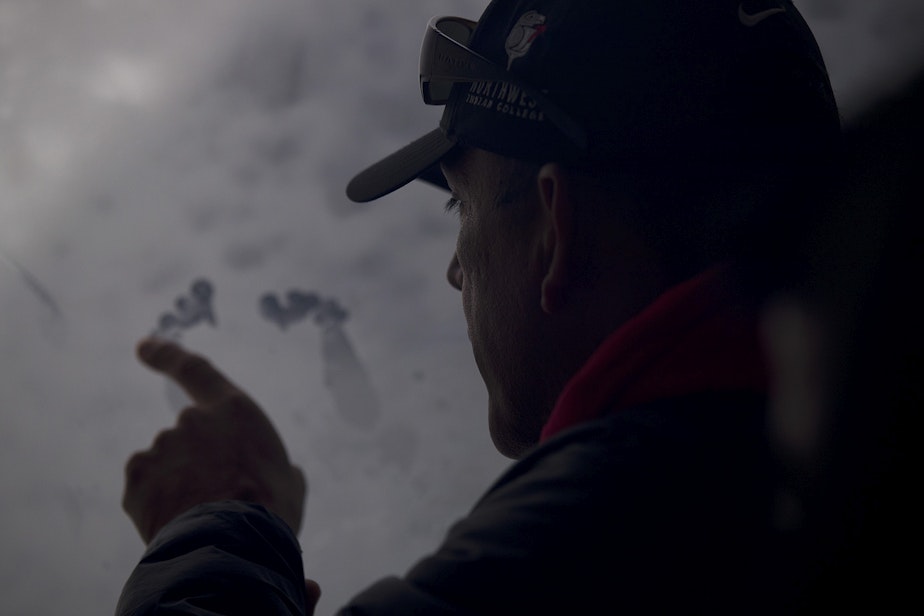
“The general public has no idea what happened to our people, with the destruction of our language and culture,” he said.
The killer whales, the Lummi’s relatives under the water, are part of the broader culture that needs to be preserved, he said.
“The qwe lhol mechen that live under the water are part of our ancestors of our people," he said.
For many of the tribal members, the ceremony represented hope that the southern resident killer whale population will recover. And that J17 will stop starving.
According to the Center for Whale Research, there’s reason for hope.
Earlier this month, the center noted J17’s condition had improved.




